Spent Caustic Solutions From a Petroleum Refinery: A RCRA Conditional Exclusion at 40 CFR 261.4(a)(19)
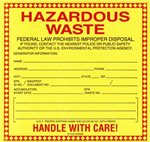
August 2014 – Rules & Regulations, Proposed Rules, and Notices Regarding the Management of Hazardous Waste and the Transportation of Hazardous Materials
On its website the US Government Printing Office makes a wealth of Federal publications available for review and download; one of these is the Federal Register.
Published by the Office of the Federal Register, National Archives and Records Administration (NARA), the Federal Register is the official daily publication for rules, proposed rules, and notices of Federal agencies and organizations, as well as executive orders and other presidential documents.
See below for a brief summary of announcements in the Federal Register by the US EPA on the subject of Hazardous Waste and the Pipeline & Hazardous Materials Safety Administration (PHMSA), Federal Railroad Administration (FRA), and the Federal Aviation Administration (FAA) of the US DOT on the subject of Transportation of Hazardous Materials.
The Federal Register is a great way to look down the road and see potential changes to the regulations long before they are put into effect (sometimes The Rulemaking Process takes years before a final rule is issued, if ever). Knowledge of these potential changes provides you with several advantages:
- Additional time to modify your business operations to comply.
- Awareness of on what topics the regulatory agencies intend to focus their efforts.
- The ability to register your concerns, complaints, suggestions, etc. in order to modify the proposed rule before a final rule is issued. It can be done, really!
- Make changes to your training program to account for changes that become effective before the next training cycle.
- Alert you to the need to re-train your employees prior to their next scheduled training cycle, if necessary.
- Keep you abreast of changes to the regulations that affect your business and/or your industry group.
Please note that this is my best effort to identify the relevant announcements in the Federal Register that may be of interest to generators of hazardous waste and shippers of hazardous materials. I encourage you to review the list of Federal Register publications yourself to ensure regulatory compliance.
August 1, 2014 through August 31, 2014
USEPA – US Environmental Protection Agency:

Publications not related to the management of hazardous waste, solid waste, universal waste, or used oil are not included here.
Rules and Regulations:
Oklahoma: Final Authorization of State Hazardous Waste Management Program Revision Pages 51497 – 51500 [FR DOC # 2014-20647] PDF | Text | More
Proposed Rules:
Hazardous Waste Management System; Identification and Listing of Hazardous Waste; Proposed Exclusion. Pages 49252 – 49260 [FR DOC # 2014-19771] PDF | Text | More
Oklahoma: Final Authorization of State Hazardous Waste Management Program Revisions Pages 51520 – 51520 [FR DOC # 2014-20648] PDF | Text | More
Notices:
None
FAA – Federal Aviation Administration:
Publications not related to the transportation of hazardous materials are not included here.
Rules and Regulations:
None
Proposed Rules:
None
Notices:
None
FMCSA – Federal Motor Carrier Safety Administration:
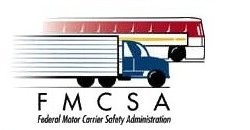
Publications not related to the transportation of hazardous materials are not included here.
Rules and Regulations:
None
Proposed Rules:
None
Notices:
None
FRA – Federal Railroad Administration:
Publications not related to the transportation of hazardous materials are not included here.
Rules and Regulations:
None
Proposed Rules:
None
Notices:
None
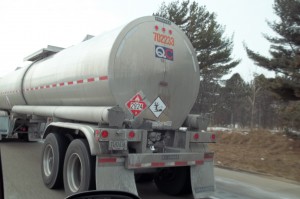
PHMSA – Pipeline and Hazardous Materials Safety Administration:
Publications not related to the transportation of hazardous materials are not included here.
Rules and Regulations:
Hazardous Materials: Transportation of Lithium Batteries. Pages 46011 – 46040 [FR DOC # 2014-18146] PDF | Text | More
Hazardous Materials: Failure To Pay Civil Penalties Pages 46194 – 46200 [FR DOC # 2014-18617] PDF | Text | More
Proposed Rules:
Hazardous Materials: Enhanced Tank Car Standards and Operational Controls for High-Hazard Flammable Trains. Pages 45015 – 45079 [FR DOC # 2014-17764] PDF | Text | More
Hazardous Materials: Oil Spill Response Plans for High-Hazard Flammable Trains. Pages 45079 – 45083 [FR DOC # 2014-17762] PDF | Text | More
Hazardous Materials: Reverse Logistics (RRR) Pages 46748 – 46758 [FR DOC # 2014-18741] PDF | Text | More
Hazardous Materials: Special Permit and Approvals Standard Operating Procedures and Evaluation Process Pages 47047 – 47063 [FR DOC # 2014-18925] PDF | Text | More
Hazardous Materials: Harmonization With International Standards (RRR) Pages 50741 – 50834 [FR DOC # 2014-19161] PDF | Text | More
Notices:
Office of Hazardous Materials Safety; Notice of Application for Special Permits Pages 50983 – 50983 [FR DOC # 2014-20070] PDF | Text | More
Office of Hazardous Materials Safety; Special Permit Applications Pages 50984 – 50985 [FR DOC # 2014-20073] PDF | Text | More
Office of Hazardous Materials Safety; Notice of Delayed Special Permit Applications Pages 50985 – 50985 [FR DOC # 2014-20072] PDF | Text | More
Office of Hazardous Materials Safety; Notice of Applications for Modification of Special Permit Pages 50986 – 50986 [FR DOC # 2014-20071] PDF | Text | More
Information can be helpful but it’s useless if you are not able to make sense of it. You must be able to determine how any changes to the rules and regulations (final or proposed) will affect your operations, and communicate the necessary information to your personnel. I can help you to do that.

Daniels Training Services 815.821.1550 |
Please contact for a free training consultation to determine your regulatory requirements and how training can help you to attain and maintain compliance with the regulations of the US Environmental Protection Agency (and your state) and the PHMSA, FRA, FAA, & FMCSA of the US Department of Transportation.
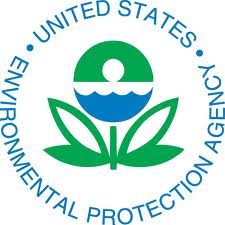
Company in Baltimore Settles With USEPA Regarding Alleged RCRA Violations. Pays $39,400 Penalty.
The Bullet:
The owner/operator of a manufacturing facility in Baltimore, MD agreed to a settlement with the USEPA over its alleged violations of Federal regulations based on the Resource Conservation and Recovery Act (RCRA). As part of settlement the company agreed to come into full compliance with state and Federal regulations and to pay a penalty of $39,400.
Who:
Simpson Strong-Tie Company, Inc. manufactures epoxy-based products, grout and cement products, and fiberglass molds.
USEPA contact: Donna Heron 215-814-5113 / heron.donna@epa.gov
What:
The alleged violations involve containers of spent acetone and spent dibasic ester managed as hazardous waste and include:
- Failure to make a hazardous waste determination.
- Failure to keep hazardous waste containers closed except when adding or removing waste.
- Failure to label and date hazardous waste containers
- Failure to provide proper EPA identification numbers on hazardous waste manifests.
As part of this settlement, the company has neither admitted nor denied liability for the alleged violations, but has certified its compliance with applicable RCRA regulations.
Where:
The company operates a manufacturing plant located at 3100 Falls Cliff Rd., Baltimore, Md.
When:
Initial USEPA inspection of facility in April of 2012.
USEPA news release of settlement dated June 10, 2014.
Why:
RCRA is designed to protect public health and the environment, and avoid costly cleanups, by requiring the safe, environmentally sound storage and disposal of hazardous waste. By complying with regulatory requirements for managing hazardous waste, the company will significantly reduce the possibility of accidents that could contaminate soil and groundwater.
How:
Though Maryland has an authorized hazardous waste program administered by the Maryland Department of the Environment, in this case the USEPA was the lead Agency in settling this issue with the company.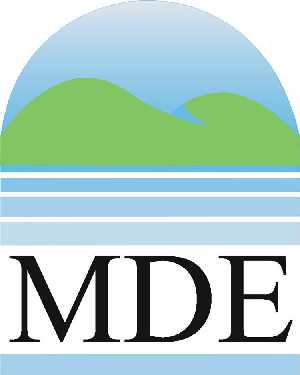
Conclusion:
How expensive is training? How much time will it take? Will it be a big hassle? My answer to these questions, and others like it, is that my training is much less expensive and time-consuming than a single violation of the Federal or State hazardous waste regulations. If you’re a Large Quantity Generator of hazardous waste you must provide annual training for all of your Facility Personnel who are exposed to hazardous waste. Confused? Don’t be. Contact me for a free RCRA Training consultation.
Contact me with any questions you may have about the transportation of hazardous materials
Daniels Training Services 815.821.1550 |

Notice of Violation Issued to Dover Air Force Base for RCRA Violations
The Bullet:
The Dover Air Force Base was issued a Notice of Violation (NOV) for multiple violations of the RCRA regulations by the Delaware DNREC.
Notice of Violation Number: 2014-11918
Who:
Violator: Dover Air Force Base
Agency issuing NOV: Delaware Department of Natural Resources and Environmental Control (DNREC)
DNREC Contact: Ferree, Melissa A / (302) 739-9403
What:
The Notice of Violation included the following:
- Improper, incorrect, or no preparation of the Uniform Hazardous Waste Manifest when hazardous waste is offered for off-site treatment, storage or disposal.
- Design standards for waste piles were not met.
- Hazardous waste offered for transportation to transporters that have not received an EPA identification number or a Delaware hazardous waste transporter permit.
- Hazardous waste offered for transportation to treatment, storage, or disposal facilities that have not received an EPA identification number.
- Actions of a treatment, storage, or disposal facility by a generator for which DNREC requires a permit.
- Failure to complete and document a hazardous waste determination.
Where:
Location Address: 600 Chevron Avenue Dover AFB, DE 199025600
When:
Date Discovered: December 4, 2013
Enforcement Action Served: July 11, 2014
Why:
Violations of RCRA Regulations can jeopardize the environment and the health and safety of employees and the general public who live in that environment. It is the responsibility of all hazardous waste generators to know and comply with the regulations – both State and Federal – to which they are subject.
How:
The DNREC has the authority granted it by the Resource Conservation and Recovery Act (RCRA) to operate the hazardous waste program within the state of Delaware. The Dover Air Force Base is subject to RCRA regulations – both State and Federal.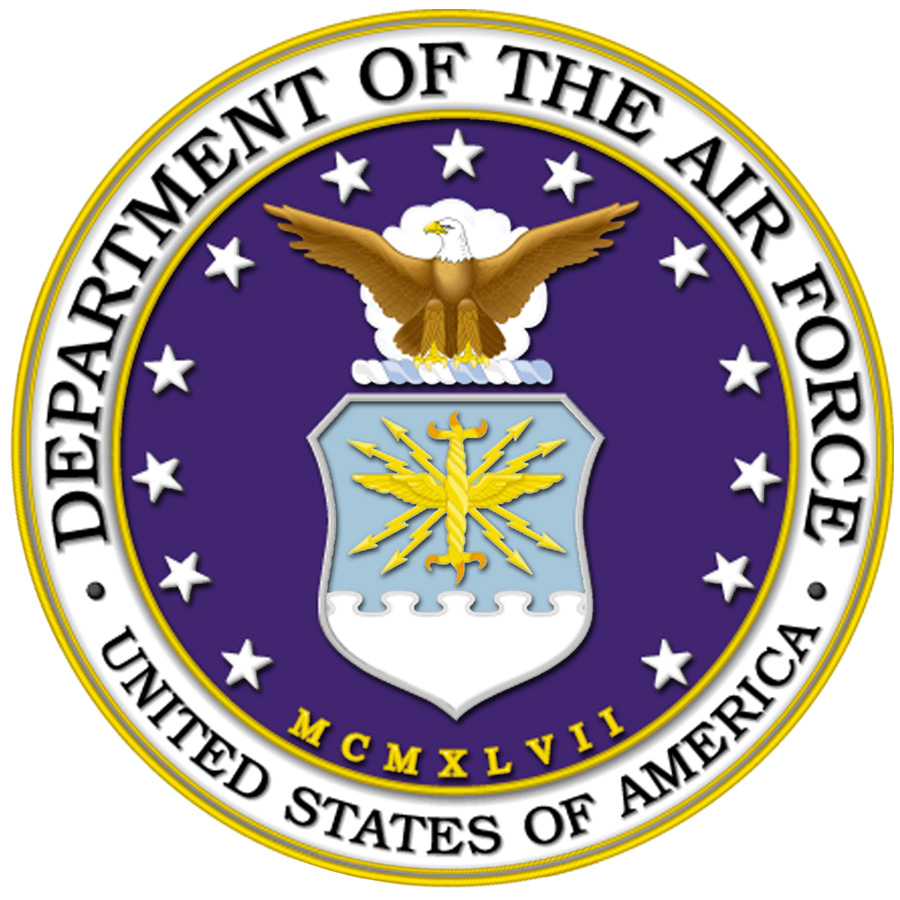
Conclusion:
 You may be surprised that property owned and operated by a branch of the US Armed Forces could be cited for violations of State environmental regulations, but they can. An Air Force base no less than your company must comply with the RCRA regulations that apply to a hazardous waste from cradle-to-grave (ie. from its point of generation, through its transportation in commerce, to its final disposal). A good first step to compliance is Facility Personnel Training required by 40 CFR 265.16. Contact me to discuss how the RCRA regulations apply to you and what training you must provide.
You may be surprised that property owned and operated by a branch of the US Armed Forces could be cited for violations of State environmental regulations, but they can. An Air Force base no less than your company must comply with the RCRA regulations that apply to a hazardous waste from cradle-to-grave (ie. from its point of generation, through its transportation in commerce, to its final disposal). A good first step to compliance is Facility Personnel Training required by 40 CFR 265.16. Contact me to discuss how the RCRA regulations apply to you and what training you must provide.
Contact me with any questions you may have about the transportation of hazardous materials Daniels Training Services 815.821.1550 |
Former Texas Logistics Company Manager Sentenced for Falsifying Shipping Documents
The Bullet:
The deliberate falsification of HazMat shipping papers by a company official led to conviction and sentencing in a criminal court.

Who:
The Defendant is Mr. Ryan Thomas, former Logistics Manager for CES Environmental Services in Houston, Texas.
The case was investigated by EPA’s Criminal Investigation Division and the U.S. Department of Transportation, the Texas Commission on Environmental Quality, the Houston Police Department, the U.S. Department of Labor and the U.S. Coast Guard. It was prosecuted by the Department of Transportation with assistance of Department of Justice’s Environmental Crimes Section.
What:
Mr. Thomas was sentenced to 12 months’ probation, ordered to pay a $500 fine, and to serve 100 hours of community service.
Where:
The CES Environmental Services facilities in question are located in Houston and Port Arthur, TX.
Mr. Thomas was sentenced in U.S. District Court in Beaumont, Texas.
When:
Mr. Thomas was sentenced on July 14, 2014.
Why:
Mr. Thomas produced manifests that falsely indicated that three cargo tank motor vehicles of wastewater originated from the CES Houston plant when in fact, they were produced and shipped from the CES Port Arthur (PACES) plant. The PACES location had been placed on a moratorium after a November 3, 2008, accident in which a CES driver was overcome by vapors released during the offloading of wastewater. The disposal facility placed the moratorium on all loads of waste-water from the PACES location until the cause of the accident could be identified and new inbound load testing protocols were agreed to. Mr. Thomas’ actions sought to circumvent this moratorium.
How:

The deliberate falsification of HazMat shipping papers caused this case to be treated as a criminal case and not a civil. The USEPA has the authority to turn cases such as these over to the Department of Justice who then prosecutes criminal cases on their behalf.
Conclusion:
Usually, violations of Agency regulations result in civil penalties and forfeitures. In situations where deliberate falsification is suspected – such as this one – criminal prosecution may result. Whether civil or criminal, no person or company wants to subject itself to the problems that non-compliance can bring. Make certain that your facility is in compliance with the regulations of the USEPA, your state, and the USDOT for the cradle-to-grave management of hazardous waste and the transportation of hazardous materials. I can assist you with compliance in several ways:
Contact me with any questions you may have about the transportation of hazardous materials Daniels Training Services 815.821.1550 |
- Contact me with a question about the regulations or for a free training consultation.
- Subscribe to my Monthly Newsletter.
- Arrange for one of my many training options to ensure all of your personnel are familiar with the applicable regulations.
Like this article?
Subscribe to my Monthly Newsletter
No marketing emails!

Delaware Hospital Cited for Multiple RCRA Violations
The Bullet:
A hospital in Dover, DE was cited for multiple violations of state regulations by the DNREC.
Who:
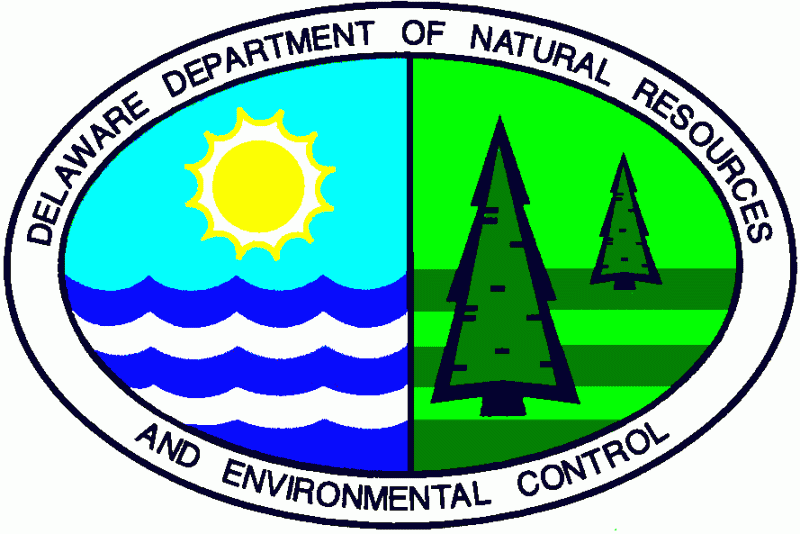
Bayhealth Kent General Hospital. A Large Quantity Generator of hazardous waste and a Small Quantity Handler of Universal Waste.
Delaware Department of Natural Resources and Environmental Control (DNREC)
DNREC Contact: Ferree, Melissa A
DNREC Contact Phone: (302) 739-9403
What:
A generator of hazardous waste and a handler of universal waste is subject to regulations (based on the Resource Conservation and Recovery Act or RCRA) for the cradle to grave management of that waste.
Where:
Bayhealth Kent General Hospital is located at 640 South State Street Dover, DE 19901
When:
Date discovered: July 31, 2014
Enforcement Action served August 22, 2014
Why:
The hospital was cited for the following violations of state regulations based upon the Resource Conservation and Recovery Act (RCRA):
- Containers of hazardous waste were not marked with accumulation start date.
- A list of personnel names and job titles was not maintained as part of the Facility Personnel training records.
- Copies of the Uniform Hazardous Waste Manifest for off-site shipments of hazardous waste were not maintained for the required three years.
- Universal waste lamps were not contained in containers or packages that were structurally sound, adequate to prevent breakage, and compatible with the contents.
- Hazardous waste storage areas were not inspected at least weekly, and a written record of the inspections were not maintained for at least 3 years.
- Hazardous waste containers in a Satellite Accumulation Area were not marked either with the words “Hazardous Waste” or with the word “Waste” and a description to identify the contents of the container (e.g., Waste Acetone, Waste Solvent).
- Containers of universal waste batteries were not labeled/marked properly to identify the contents.
- A copy of all notices, certifications, waste analysis data and other documentation produced pursuant to the RCRA regulations were not retained on site for a minimum of three years.
- The exception report was not submitted to the DNREC as required when a signed copy of the Uniform Hazardous Waste Manifest was not received by the generator within 45 days of it being shipped off-site.
- Hazardous waste (not in a Satellite Accumulation Area) was accumulated on-site for more than 90 days. Accumulation of hazardous waste beyond 90 days requires a permit from DNREC.
- Uniform Hazardous Waste Manifest was not prepared properly by the generator.
- Written job description not maintained as part of the training records for each employee handling hazardous waste.
- Waste containers and tanks were not labeled or clearly marked with the words “Hazardous Waste”.
- Hazardous waste in a Satellite Accumulation Area was not maintained properly.
- Containers of hazardous waste were not kept closed except for times when adding or removing waste.
- Generator did not have a RCRA Contingency Plan.
- Initial training not provided for all employees handling hazardous waste (ie. Facility Personnel).
- Annual hazardous waste report not completed and submitted.
- Hazardous waste determination not completed.
- Arrangements and agreements with local authorities for emergency services were not made.
- Hazardous waste generated on-site was offered for off-site transportation to transporters that had not received an EPA identification number and a Delaware hazardous waste transporter permit.
- Hazardous waste generated on-site was transported for disposal to treatment, storage, or disposal facilities (TSDFs) that have not received an EPA identification number.
How:
As a state with an authorized hazardous waste program the DNREC is the lead agency for the enforcement of state environmental regulations in Delaware. Violations such as these can be discovered during periodic unannounced inspections of a hazardous waste generator.

Conclusion:
A long list of violations – and an unspecified amount of fines – were assessed for what are – for the most part – relatively simple violations of the regulations. While only a few of the violations directly relate to the requirement to provide initial and annual training for all Facility Personnel, all of them are things that a generator of hazardous waste should know and are topics addressed in my Training Seminars. Further, my Onsite Training includes a site inspection and informal consultation that would have revealed these deficiencies before the training even took place. Consider a situation like this when you determine if Hazardous Waste Personnel Training costs too much.
Contact me for a free training consultation.
Contact me with any questions you may have about the transportation of hazardous materials Daniels Training Services 815.821.1550 |
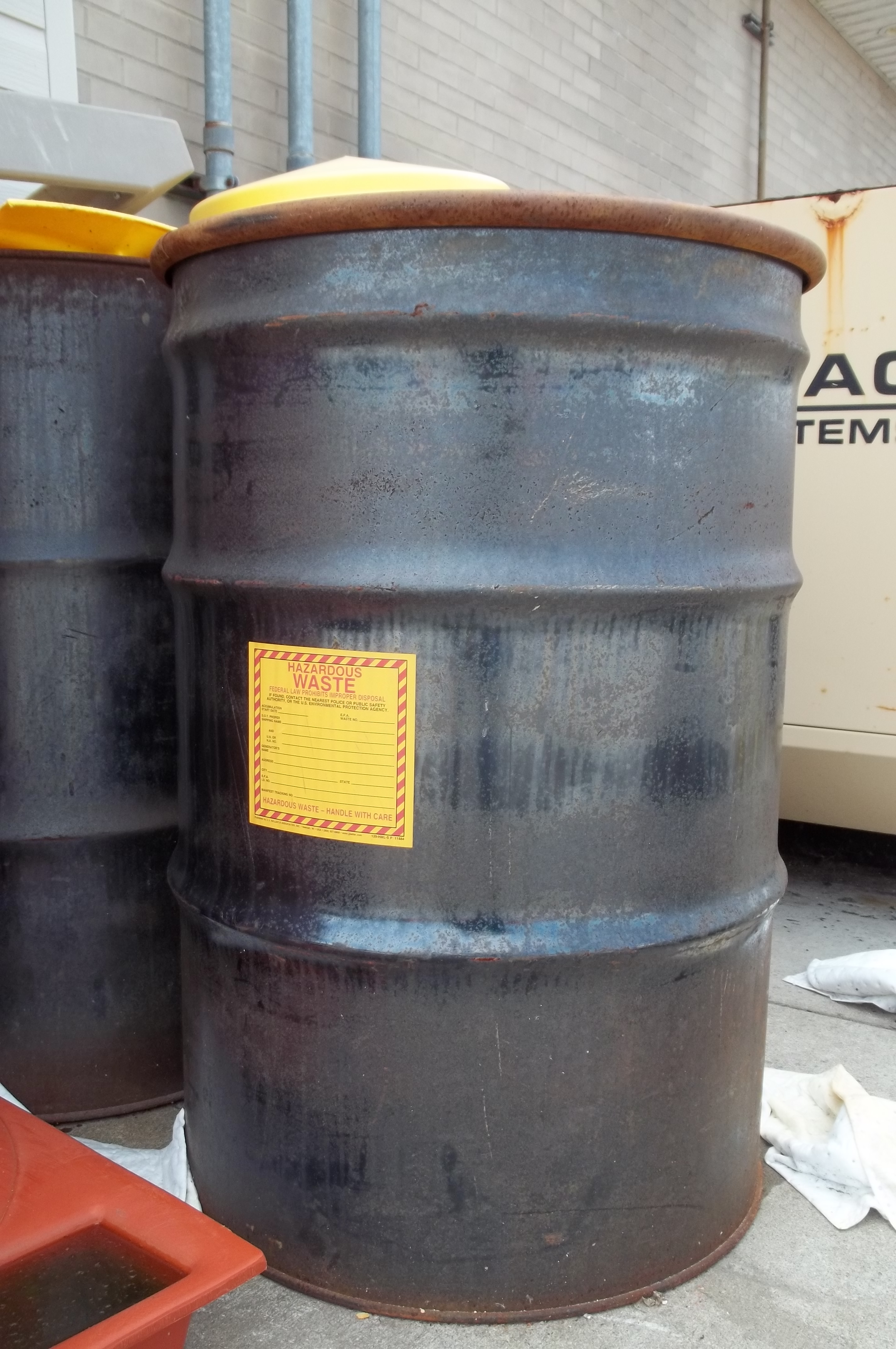
Reuse of HazMat Packaging for the Shipment of Hazardous Waste
The reuse, reconditioning, and remanufacture of hazardous material packagings (both bulk and non-bulk) is addressed at 49 CFR 173.28 of the PHMSA/USDOT Hazardous Material Regulations. In general packagings and receptacles (bulk and non-bulk) used more than once must be in good condition and comply with all of the requirements of the HMR for HazMat packaging; including closure devices and cushioning materials. Before reuse, each packaging must be inspected by the Shipper and may not be reused unless free from incompatible residue, rupture, or other damage which reduces its structural integrity. Packagings not meeting the minimum thickness requirements prescribed in 49 CFR 173.28(b)(4)(i) may not be reused or reconditioned for reuse, though they may be acceptable for remanufacture. §173.28 goes on to identify the specific requirements and restrictions for the reuse, reconditioning and remanufacture of non-bulk packagings for the transportation of hazardous materials. §173.28(b)(6) however, contains an exception from this regulation for the reuse of a non-bulk packaging for the shipment of a hazardous waste.
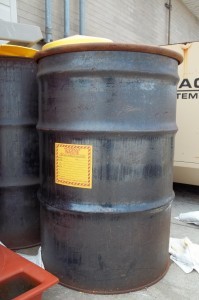
Components of Compliance: The Law, Regulations, and Guidance & Policy Documents
While most of the regulated community have some knowledge of the applicable regulations which with they must comply; and a passing familiarity with USEPA Guidance and Policy Documents; and a vague awareness of the law upon which they are all based; many lack a complete understanding of the relationship of these resources to their responsibility as a generator of hazardous waste. The purpose of this article is to explain the role of these three elements: the Resource Conservation and Recovery Act, the USEPA – and State – regulations, and Guidance & Policy Documents of both the USEPA and your state. (more…)
The Identification of Solid Waste in Texas

Though very similar to those of the USEPA, as a state with an authorized hazardous waste program under RCRA, Texas waste regulations – created and enforced by the Texas Commission on Environmental Quality (TCEQ) – have their own state-specific nuances. For a person in Texas subject to these regulations, slight differences between state and Federal regulations can make a big difference. This article will look at one aspect of the waste regulations of the TCEQ in Texas: What is, and isn’t, a Solid Waste. (more…)
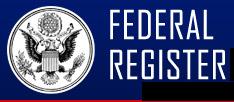
July 2014 – Rules & Regulations, Proposed Rules, and Notices Regarding the Management of Hazardous Waste and the Transportation of Hazardous Materials
On its website the US Government Printing Office makes a wealth of Federal publications available for review and download; one of these is the Federal Register.
Published by the Office of the Federal Register, National Archives and Records Administration (NARA), the Federal Register is the official daily publication for rules, proposed rules, and notices of Federal agencies and organizations, as well as executive orders and other presidential documents.
See below for a brief summary of announcements in the Federal Register by the US EPA on the subject of Hazardous Waste and the Pipeline & Hazardous Materials Safety Administration (PHMSA), Federal Railroad Administration (FRA), and the Federal Aviation Administration (FAA) of the US DOT on the subject of Transportation of Hazardous Materials.
The Federal Register is a great way to look down the road and see potential changes to the regulations long before they are put into effect (sometimes The Rulemaking Process takes years before a final rule is issued, if ever). Knowledge of these potential changes provides you with several advantages:

- Additional time to modify your business operations to comply.
- Awareness of on what topics the regulatory agencies intend to focus their efforts.
- The ability to register your concerns, complaints, suggestions, etc. in order to modify the proposed rule before a final rule is issued. It can be done, really!
- Make changes to your training program to account for changes that become effective before the next training cycle.
- Alert you to the need to re-train your employees prior to their next scheduled training cycle, if necessary.
- Keep you abreast of changes to the regulations that affect your business and/or your industry group.
Please note that this is my best effort to identify the relevant announcements in the Federal Register that may be of interest to generators of hazardous waste and shippers of hazardous materials. I encourage you to review the list of Federal Register publications yourself to ensure regulatory compliance.
July 1 through July 31, 2014
PHMSA – Pipeline and Hazardous Materials Safety Administration:
Rules and Regulations:
Hazardous Materials: Compatibility With the Regulations of the International Atomic Energy Agency (RRR) Pages 40589 – 40618 [FR DOC # 2014-15514] PDF | Text | More
Shippers-General Requirements for Shipments and Packagings Pages 43266 – 43267 [FR DOC # 2014-17663] PDF | Text | More
Proposed Rules:
Hazardous Materials: Requirements for the Safe Transportation of Bulk Explosives (RRR) Pages 41185 – 41211 [FR DOC # 2014-16382] PDF | Text | More
Notices:
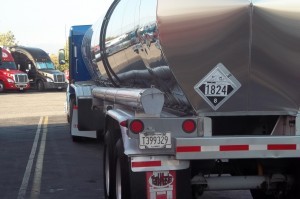
Safety Advisory: Unauthorized Certification of Compressed Gas Cylinders Pages 38126 – 38126 [FR DOC # 2014-15601] PDF | Text | More
Office of Hazardous Materials Safety; Notice of Applications for Modification of Special Permit Pages 43815 – 43815 [FR DOC # 2014-17508] PDF | Text | More
Office of Hazardous Materials Safety; Notice of Application for Special Permits Pages 43815 – 43816 [FR DOC # 2014-17506] PDF | Text | More
Office of Hazardous Materials Safety; Special Permits; Applications Pages 43816 – 43818 [FR DOC # 2014-17507] PDF | Text | More
Office of Hazardous Materials Safety Special Permits; Applications Pages 43818 – 43819 [FR DOC # 2014-17509] PDF | Text | More
FRA – Federal Railroad Administration:
Rules and Regulations:
Signal Systems Reporting Requirements Pages 37664 – 37669 [FR DOC # 2014-15336] PDF | Text | More
Proposed Rules:
None
Notices:
None
FAA – Federal Aviation Administration:
Rules and Regulations:
None
Proposed Rules:
None
Notices:
None
FMCSA – Federal Motor Carrier Safety Administration:

Rules and Regulations:
Hours of Service for Commercial Motor Vehicle Drivers; Regulatory Guidance Concerning Records of Duty Status Generated by Logging Software Programs Pages 39342 – 39343 [FR DOC # 2014-15951] PDF | Text | More
Proposed Rules:
None
Notices:
National Hazardous Materials Route Registry Pages 40843 – 40913 [FR DOC # 2014-15861] PDF | Text | More
Enhancements to the Motor Carrier Safety Measurement System (SMS) Web Site Pages 43117 – 43122 [FR DOC # 2014-17489] PDF | Text | More
USEPA – US Environmental Protection Agency:
Rules and Regulations:
Oklahoma: Incorporation by Reference of Approved State Hazardous Waste Management Program Pages 37226 – 37230 [FR DOC # 2014-15267] PDF | Text | More
Proposed Rules:
Oklahoma: Incorporation by Reference of State Hazardous Waste Management Program Pages 37261 – 37262 [FR DOC # 2014-15268] PDF | Text | More
Standards of Performance for Municipal Solid Waste Landfills Pages 41795 – 41843 [FR DOC # 2014-16405] PDF | Text | More
Notices:
Proposed Determination to Restrict the Use of an Area as a Disposal Site; Pebble Deposit Area, Southwest Alaska Pages 42314 – 42318 [FR DOC # 2014-16920] PDF | Text | More
Information can be helpful but it’s useless if you are not able to make sense of it. You must be able to determine how any changes to the rules and regulations (final or proposed) will affect your operations, and communicate the necessary information to your personnel. I can help you to do that.
Daniels Training Services 815.821.1550 |
Please contact for a free training consultation to determine your regulatory requirements and how training can help you to attain and maintain compliance with the regulations of the USEPA (and your state) and the PHMSA/USDOT.

